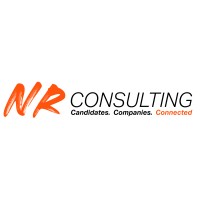Description
The Mainframe Architect plays a key role in designing, optimizing, and managing mainframe computer systems to support the organization's business processes. They are responsible for ensuring the availability, performance, and security of mainframe environments.
Key Responsibilities:
- System Design and Architecture: Design and architect mainframe systems, ensuring they meet the organization's performance, scalability, and security requirements. This may involve working on hardware, software, and network configurations.
- Capacity Planning: Evaluate and forecast mainframe resource needs to ensure the system can handle current and future workloads. Make recommendations for hardware and software upgrades as necessary.
- Performance Tuning: Monitor mainframe systems for performance bottlenecks and implement tuning strategies to optimize system performance. This includes optimizing batch processing and online transaction processing.
- Security: Implement and maintain security measures to protect mainframe systems and data from unauthorized access and cyber threats. Ensure compliance with relevant regulations and industry standards.
- High Availability and Disaster Recovery: Develop and maintain high availability and disaster recovery solutions to minimize downtime and data loss in the event of system failures.
- Vendor Management: Work with mainframe hardware and software vendors to evaluate and select appropriate solutions, negotiate contracts, and manage vendor relationships.
- Documentation: Maintain comprehensive documentation of mainframe configurations, procedures, and best practices for reference and troubleshooting.
- Collaboration: Collaborate with other IT teams, including application developers, database administrators, and network engineers, to ensure seamless integration of mainframe systems with other IT infrastructure components.
- Training and Mentoring: Provide training and guidance to junior staff members and other IT professionals who interact with mainframe systems.
- Compliance: Ensure that mainframe systems comply with industry regulations and internal policies related to data security, privacy, and auditing.
Qualifications:
- Bachelor's degree in computer science, information technology, or a related field (advanced degrees may be preferred).
- Proven experience (typically 5+ years) working with mainframe systems in a senior or architect role.
- In-depth knowledge of mainframe hardware, operating systems (e.g., z/OS), and software (e.g., CICS, DB2).
- Strong understanding of security protocols, compliance standards, and best practices.
- Proficiency in performance tuning and capacity planning for mainframe systems.
- Excellent problem-solving and troubleshooting skills.
- Strong communication and interpersonal skills.
- Certifications related to mainframe technologies (e.g., IBM Certified System Administrator) may be advantageous
Education
Bachelor's Degree
- Posted On: 8 days Ago
- Experience: 5+ years of experience
- Openings: 1
- Category: Mainframe Architect
- Tenure: Contract - Corp-to-Corp Position

